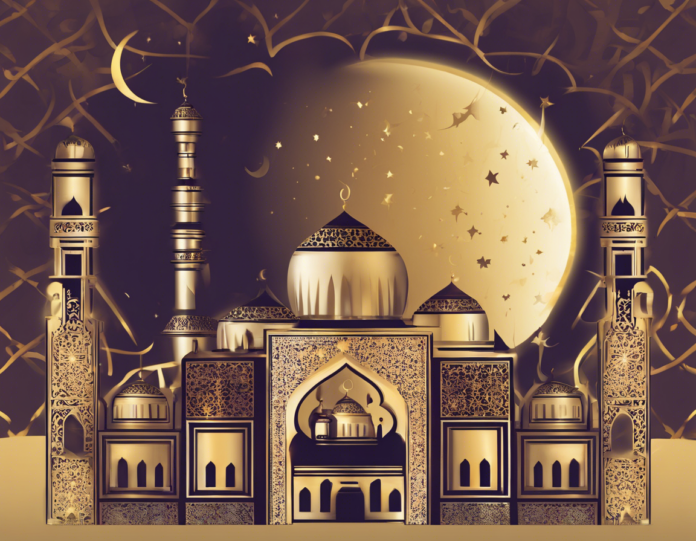Ramadan is the ninth month of the Islamic lunar calendar, known as the month of fasting for Muslims around the world. It is a time of spiritual reflection, self-improvement, and heightened devotion through fasting, prayer, and acts of charity. Ramadan is considered one of the Five Pillars of Islam, a fundamental act of worship that demonstrates obedience and submission to Allah. It is a time for Muslims to detach from worldly pleasures, focus on spiritual growth, and empathize with the less fortunate.
The Significance of Ramadan
The significance of Ramadan lies in its observance of fasting, which involves abstaining from food, drink, smoking, and marital relations from dawn (Fajr) until sunset (Maghrib). Fasting is not just about refraining from physical needs but also about controlling one’s thoughts and actions, seeking forgiveness, and purifying the soul. It is believed that during Ramadan, the gates of heaven are open, and the gates of hell are closed, and the devils are chained.
Preparing for Ramadan
Before the start of Ramadan, it is important for Muslims to prepare both physically and spiritually for the month ahead. This may include increasing acts of worship, seeking forgiveness from others, and setting intentions to make the most of this sacred time. Suhoor, the pre-dawn meal, is vital as it provides energy for the day ahead, while Iftar, the evening meal to break the fast, is a time for communal gatherings and reflection.
Fasting in Ramadan
Fasting is obligatory for all adult Muslims, with exceptions for the elderly, sick, pregnant women, nursing mothers, travelers, and young children. Intention (niyyah) plays a crucial role in fasting, as it differentiates between an ordinary act of abstaining from food and an act of worship. It is important to maintain good deeds, avoid sinful behavior, and increase acts of worship during Ramadan.
Personal Development and Reflection
Ramadan is not just about abstaining from food; it is also a time for personal reflection and growth. Muslims are encouraged to read the Quran, engage in extra prayers (Taraweeh), make supplications (dua), and increase acts of charity (Sadaqah). The month serves as an opportunity for self-improvement, self-discipline, and fostering a deeper connection with Allah.
Community and Solidarity
Ramadan promotes community bonding and solidarity. It is a time for Muslims to come together for prayers, iftars, and nightly Taraweeh prayers at the mosque. Acts of charity are also amplified during Ramadan, with many individuals and organizations organizing food drives, feeding the needy, and supporting humanitarian causes.
Eid al-Fitr: Celebration of Breaking the Fast
The culmination of Ramadan is marked by Eid al-Fitr, a joyous celebration that involves communal prayers, feasting, giving of gifts, and acts of charity. Muslims dress in their best attire, attend special prayers at the mosque or open grounds, and partake in festive meals with family and friends. It is a time of gratitude, forgiveness, and spreading joy within the community.
Common Misconceptions about Ramadan
-
Ramadan is just about abstaining from food: While fasting is a core aspect, Ramadan is a holistic spiritual experience encompassing self-discipline, worship, and reflection.
-
Ramadan is only for Muslims: While fasting is obligatory for Muslims, people from other faiths can support their Muslim friends and colleagues through understanding and empathy.
-
Fasting is solely about physical deprivation: Fasting in Ramadan is about spiritual purification, self-control, empathy for the less fortunate, and seeking closeness to Allah.
Frequently Asked Questions (FAQs)
-
Can I fast if I have a medical condition?
If fasting poses a risk to your health, such as exacerbating a medical condition, then you are exempt from fasting in Ramadan. It is important to consult with a healthcare professional for guidance. -
Can children participate in fasting during Ramadan?
Children are not obligated to fast until they reach puberty. However, many children begin practicing fasting for a few hours to gradually build up their tolerance. -
Can I brush my teeth while fasting in Ramadan?
Yes, you can brush your teeth during Ramadan while fasting. It is important to ensure that no water is swallowed during the process. -
What should I do if I unintentionally break my fast?
If you accidentally break your fast, such as by eating or drinking forgetfully, then you should continue fasting for the day and make up for it later. -
Can I make up missed fasts after Ramadan?
Yes, if you are unable to fast during Ramadan due to valid reasons, you can make up for the missed fasts at a later date, preferably before the next Ramadan. -
Is there a specific prayer to perform at the beginning and end of Ramadan?
There are no specific prayers required at the beginning or end of Ramadan, but Muslims often engage in additional supplications, seeking forgiveness, and expressing gratitude during this time. -
Can non-Muslims attend Iftar gatherings during Ramadan?
Yes, non-Muslims are welcome to attend Iftar gatherings during Ramadan to experience the spirit of communal dining and foster interfaith understanding and tolerance. -
What is Laylat al-Qadr and why is it significant?
Laylat al-Qadr, or the Night of Decree, is a special night occurring during the last ten days of Ramadan, believed to be better than a thousand months. It is a time of immense blessings, forgiveness, and spiritual rewards.
Ramadan is a month of deep spirituality, self-reflection, and communal solidarity for Muslims worldwide. It is a time to strengthen faith, practice self-discipline, and show compassion towards others. By observing fasting, engaging in acts of worship, and fostering community bonds, Muslims aim to draw closer to Allah and cultivate a sense of unity with their fellow believers.









